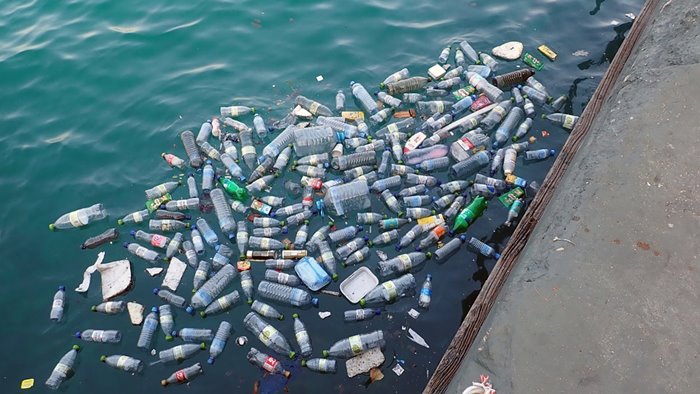Team Ocean Cleanup
Ocean First Jul 06, 2022

 Six hundred meters long, five polluted gyres, one ambitious goal - this is The Ocean Cleanup. Devised by a brilliant Dutch, then-teenager, this system hopes to tackle the infamous garbage patches with an innovative plastic collection device to help rid our ocean of plastic pollution. As always, there are skeptics, per usual there are issues, but above all else – there is hope.
Six hundred meters long, five polluted gyres, one ambitious goal - this is The Ocean Cleanup. Devised by a brilliant Dutch, then-teenager, this system hopes to tackle the infamous garbage patches with an innovative plastic collection device to help rid our ocean of plastic pollution. As always, there are skeptics, per usual there are issues, but above all else – there is hope.
With the goal of cleaning 50% of the patch in five years and a 90% reduction by 2040, many were anxious to get the gigantic buoy system on the water and doing the dirty work. The young founder, Boyan Slat, discussed with potential investors the Cleanup's ability to not only collect trash, but to turn it into treasure as well. A win-win for both the economy and the environment, it seemed like a no-brainer despite its $20 million-dollar price tag.
Requiring no external energy, the unmanned unit incorporates solar-powered monitoring, navigation, GPS, and TPV cameras and acts as a containment boom that utilizes wind, waves, and ocean currents to capture debris. The idea is to quantify the amount of microplastics and larger debris that occupy our ocean and turn them into useful resources once again.
 The statistics are staggering, yet at some point we’ve all been caught turning a blind eye to the fact that most of the animals living in our ocean have plastic in their digestive tracts. Microplastics have even been found in critters dwelling in the deepest, darkest crevasses of the Mariana Trench. And, you guessed it, plastics are now turning up in humans as well. Ever drink from a plastic bottle? Eat fish at a restaurant? There’s a chance even you have plastic in your stomach and if that feels a little too close to home, come join the movement!
The statistics are staggering, yet at some point we’ve all been caught turning a blind eye to the fact that most of the animals living in our ocean have plastic in their digestive tracts. Microplastics have even been found in critters dwelling in the deepest, darkest crevasses of the Mariana Trench. And, you guessed it, plastics are now turning up in humans as well. Ever drink from a plastic bottle? Eat fish at a restaurant? There’s a chance even you have plastic in your stomach and if that feels a little too close to home, come join the movement!
While engineering marvels continue to be refined, we can do our part, which just so happens to be the most important step in keeping our ocean clean - stopping pollution at the source. Bring your own shopping bags, reduce your meat consumption, definitely don’t skip your coffee, but perhaps you could start bringing that awesome thermos your mother got you instead of using disposable cups? It's these small, conscientious actions that ultimately create the most change, but until putting those canvas bags back in your car is a habit we’ll keep our fingers crossed that organizations like The Ocean Cleanup can pick up our slack.
